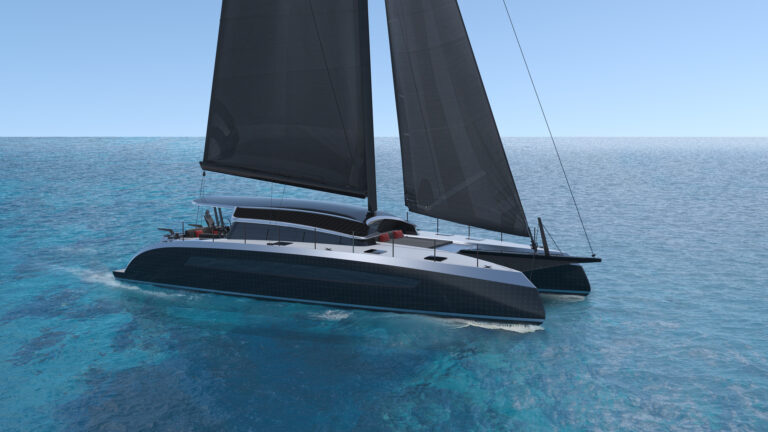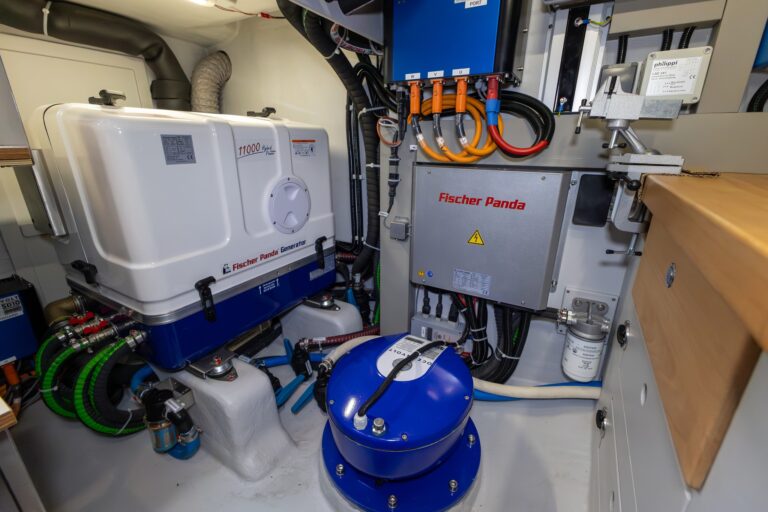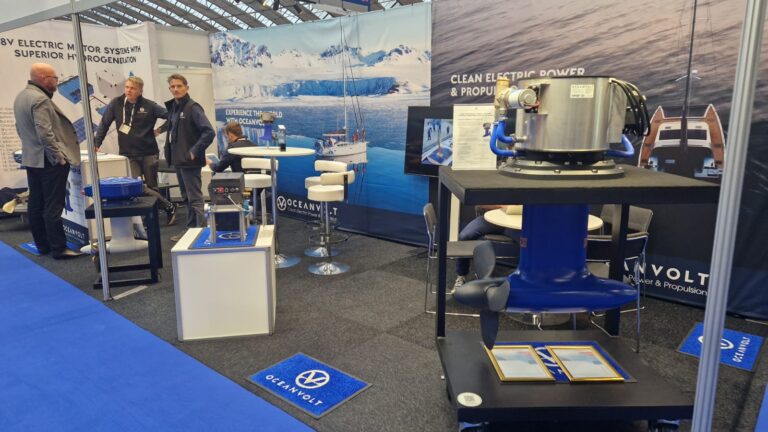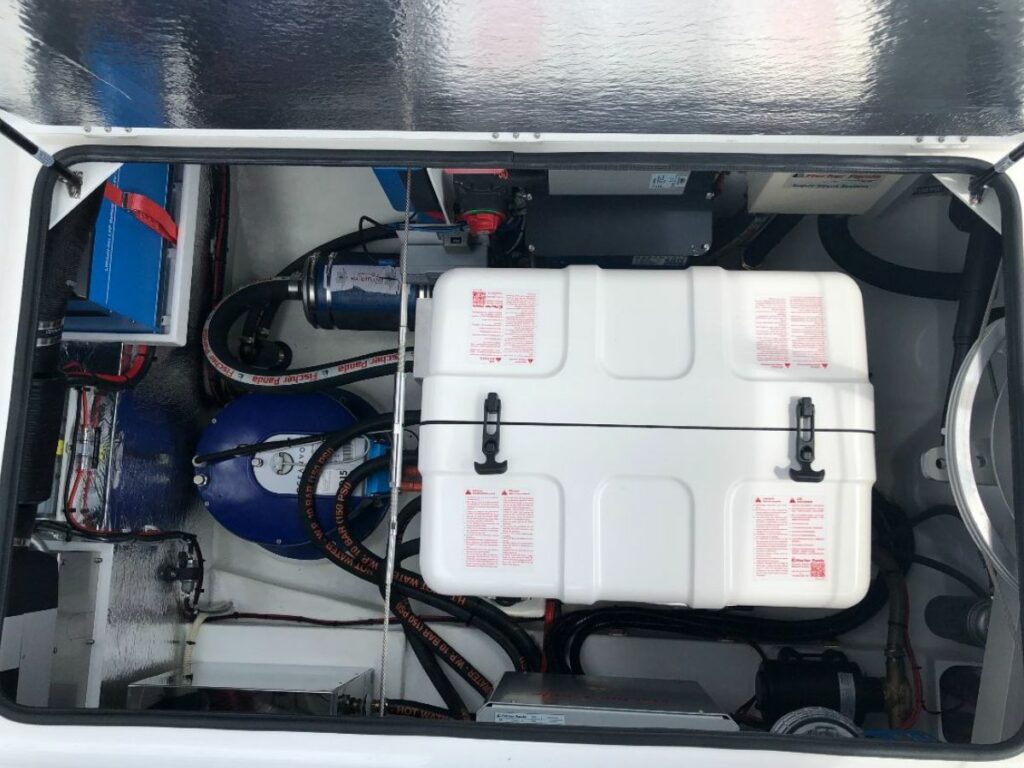
Explaining an Oceanvolt hybrid system
“Hybrid” can mean many different things, so what does an Oceanvolt hybrid system look like?
We configure our hybrid systems such that a 48 V DC generator is sized and supplied with the Oceanvolt electric propulsion motor. The generator (or ‘genset’) is linked directly to the battery bank and configured for automatic operation i.e. you turn on your electric motor and start motoring along, just on battery power. When the battery level drops to a specified level, e.g. 20%, the genset automatically switches on and charges up the batteries. Once the charge reaches a set threshold such as 80%, the genset automatically switches off, and you have continued motoring at the same speed, uninterrupted.
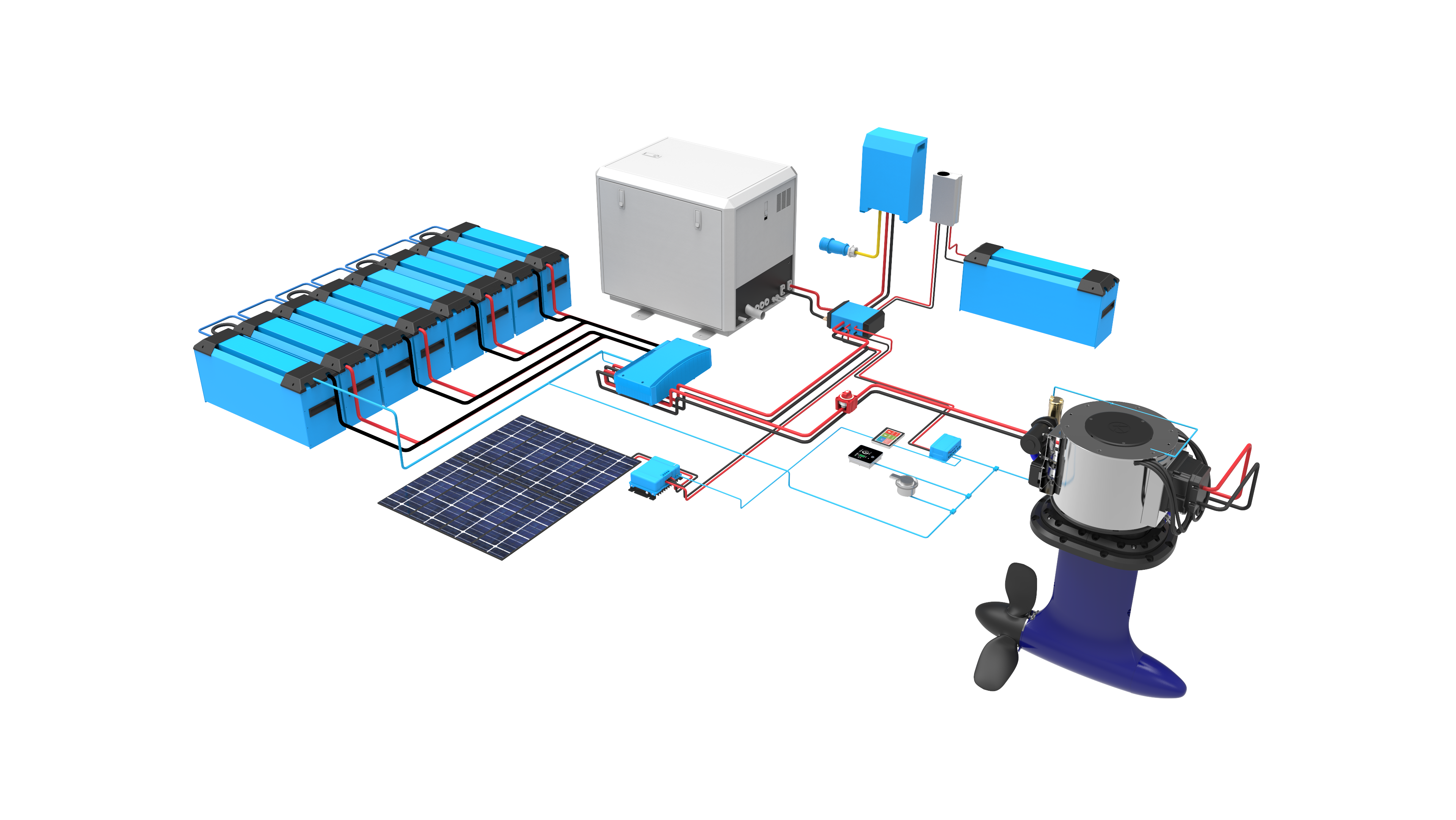
Typically, boats have AC gensets, because the majority of their electric consumption is house power, with regularly varying loads and voltages but there are a few reasons we recommend and supply DC gensets instead. Overall, a DC genset is much more efficient, reliable, robust and requires less maintenance than an AC genset. It also means faster charging. The reliability and efficiency factors come from the fact that DC gensets are not variable speed like their AC counterparts.
An AC genset varies its speed depending on how much power is required. I.e. if you switch on the air conditioner, the genset runs faster to provide more power. Running any engine at variable speeds increases wear and tear on the moving parts within the engine. This is why vehicles that drive long distances on highways can last thousands more kilometers between services compared to a vehicle that predominantly drives in stop-start traffic. Additionally, all combustion engines have a specific range where they produce the best power. Typically, at low speeds, the torque and power is less than at higher RPM’s. So running a variable speed genset means it may not always be running at its most efficient speed.
Since a DC generator runs at a constant optimal RPM, they can be designed to deliver their highest efficiency within a specific load range. This means that regardless of the power demands of the electric propulsion system, or onboard house power, the generator is always operating at its most fuel-efficient point, since it provides the power to the batteries.
Additionally, DC generators avoid the energy losses associated with speed variations and mechanical inefficiencies that can occur in variable-speed AC generators. These losses, such as additional friction and heat generation, are minimized in DC generators, leading to improved fuel efficiency.
DC generators, with their fixed-speed operation, experience less wear and tear on engine components compared to variable-speed AC generators. The consistent RPM reduces mechanical stress, resulting in improved reliability and longevity. The simplified design of DC generators also contributes to their reliability by minimizing potential failure points.
Furthermore, the absence of speed variations and the associated stress on engine components make DC generators more robust and less prone to mechanical failures. This enhanced reliability translates into reduced maintenance requirements and downtime, further contributing to their overall efficiency.
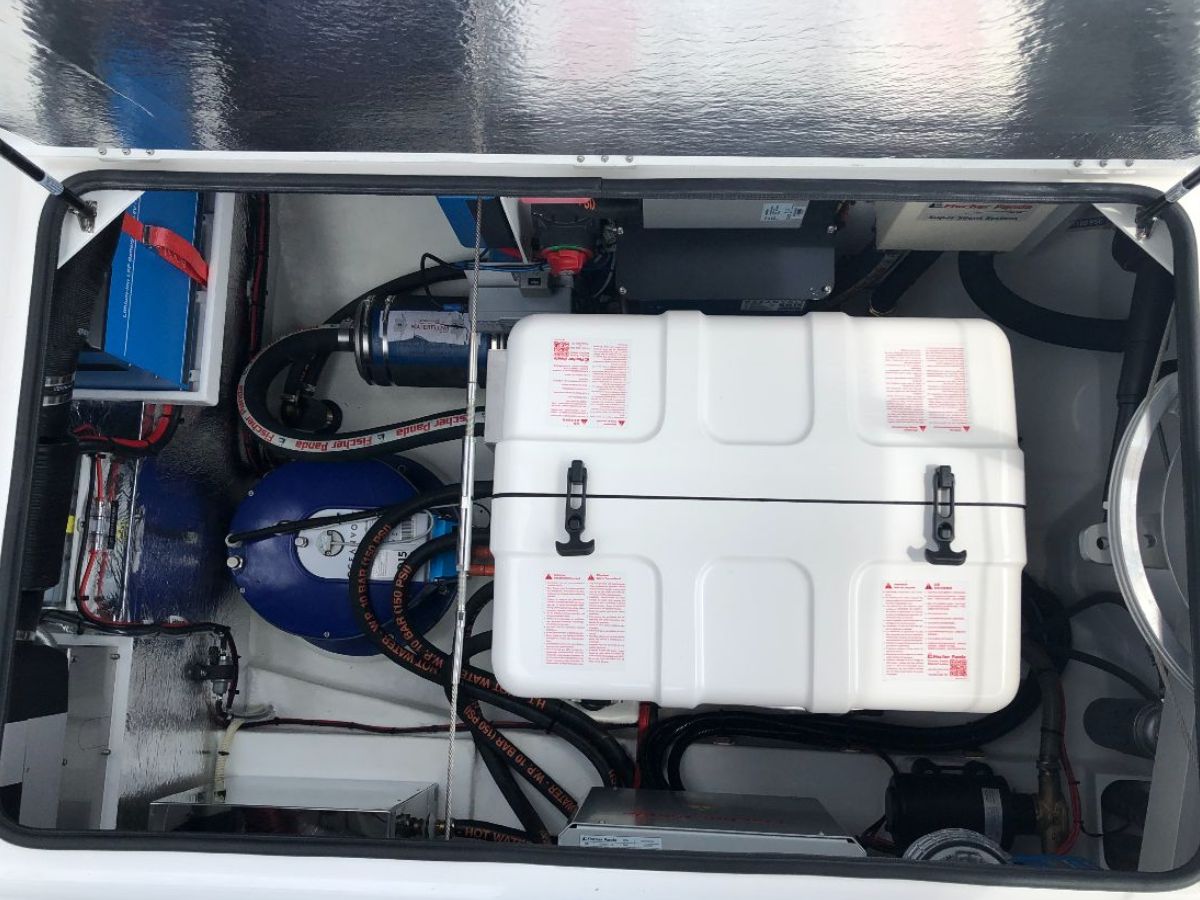
Finally, Oceanvolt suggests and supplies DC gensets that are 48 V. This is because the electric propulsion systems Oceanvolt design are all 48 V, in order to increase user safety. The added advantage is that the 48 VDC power from the genset goes directly into the 48 VDC battery bank. This is a form of efficient ‘fast charging’ since it bypasses the separate charging unit.
Whilst AC gensets can work well in an Oceanvolt system, the power they supply has to go to the charger unit, just as if the boat is plugged in to shore power. This decreases efficiency as the power is converted/transformed before feeding the battery bank.
So to sum up the differences between AC and DC generators, the fixed-speed operation of DC generators offer notable advantages in terms of fuel efficiency and reliability in hybrid electric propulsion systems. By consistently operating at the most efficient RPM, DC generators optimize fuel consumption and maximize power output, direct to the battery bank for faster battery charging. Additionally, their simplified design and reduced wear and tear on engine components contribute to increased reliability and longevity. With all this increased efficiency, it also means the generator spends less time running, which further increases the lifespan of the genset, whilst also increasing user comfort.
If we keep the concept of efficiency due to operating speed in mind, it becomes easier to comprehend how electric propulsion, even with a diesel generator, can be significantly more fuel efficient than a conventional diesel propulsion engine.
Since all combustion engines have an optimal operating speed for maximum efficiency, it stands to reason that most of the time a diesel propulsion engine is being used, it is not operating within that optimal power band. Slow maneuvers within a tight marina mean the engine is running slowly, far less efficiently than it was designed to. It is also easy to open the throttle up on longer trips, and run the engine at a higher RPM than is optimal, again reducing the efficiency.
In fact, our studies have shown that an Oceanvolt electric propulsion system with a 48 VDC generator can be up to 30% more fuel efficient than a conventional diesel propulsion engine. So if you want the extended motoring range, or are just not yet ready for a pure electric boat, it makes good sense to consider switching to a hybrid system which will end up saving time and money whilst making your boat experience far more comfortable, quiet, and smooth.
If you are interested in making your yacht quieter, smoother, and 30% more fuel efficient, get in touch with us or try our online configurator.
